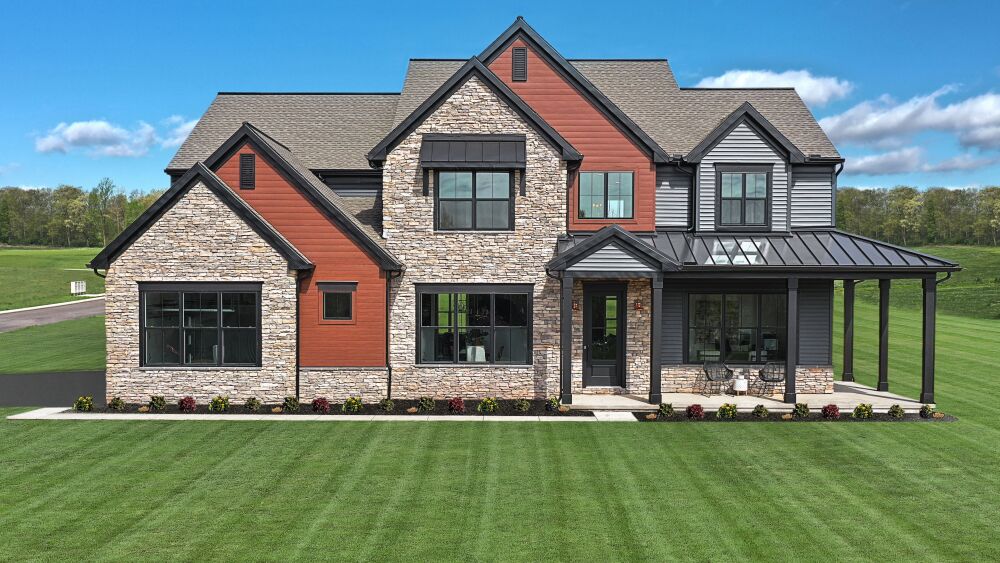Many first-time homebuyers shy away from the prospect of buying a brand-new home, falling back on some common myths that they have heard regarding new construction.
While purchasing a new construction home is different from purchasing a previously owned property, there are many misconceptions regarding new builds. As a result, homebuyers who’ve fallen prey to these rumors may be passing over an intelligent path to homeownership that makes sense for many Americans today.
With a limited inventory of existing homes available for purchase, over 30% of the current homes for sale across the United States are new construction. Homebuyers can’t afford to count out new construction homes as an option.
Based on this information here are some of the most common myths associated with new construction and the truth that dispels those myths.
New construction homes are more expensive
While the list price of new construction homes might technically be higher, that price point is not the entire picture.
On average new construction home prices are about 15% higher, but consider what is included for that price. When a buyer unwraps that price and begins to look at what’s inside the package the true price becomes a bit more clear.
A new construction home offers a wealth of items not included in the price of a comparable square footage existing home. Items such as a new roof, new HVAC sytem, new appliances, new doors and windows, new plumbing and wiring, and new flooring all need to be factored in when comparing apples to apples.
Buyers that choose to go the route of an existing home must weigh in the cost of replacing many of these new items upon taking possession of their new home.
You’ll have to wait too long to move in
On average new construction homes take 6-7 months to be built from the ground up. However, that doesn’t mean you will have to wait that long. Many builders offer spec homes that are either under construction or have been completed and are ready for a quick move-in buyer.
Buyers considering a new construction purchase will want to make sure to ask when the builder expects the house to be done, and what happens if the house is not done on time. Your Realtor can help to ensure that you have the details firmly in writing.
It’s more difficult to finance a new construction home
Thanks to potential builder incentives the opposite is actually true here. Lenders like to take on less risk (new construction provides less risk) and often the financing time frame is much shorter.
Builders often offer lower interest rates when a new construction home buyer chooses to use their preferred lender and title company. Bundling these items together can greatly reduce the complexity of the financing process and help buyers get to the closing table faster.
If you have been working with an outside lender and have already been pre-approved, which is highly recommended prior to starting your search for a new home, that isn’t a problem. Most builder lenders will work to match or beat the deal you have gotten.
New homes lose their value like new cars
New cars lose about 40% of their value over the first 5 years. . New-construction homes on the other hand appreciate in value even before their buyers have moved in.
Buyers that purchase a new construction home during the early stages of development will begin building equity even before they close on their home. Builders tend to increase home prices as they begin to build more homes in a development driving up the value of those already completed. Additionally, there is usually another increase in home values once the entire community has been finished.
Inspections of a new construction home are off limits
Nope, you can definitely have a home inspection completed before you purchase a new construction home. Buyers can actually periodically inspect the home throughout the build.
In addition to a buyer utilizing an independent inspector to evaluate the home prior to closing local municipalities also inspect the home throughout the construction process prior to issuing a final certificate of occupancy that allows for buyers to move in to the home.
Homebuyers, and their Realtor, are also provided an opportunity to conduct a final walk-through of the home prior to closing. At this time the builder’s representative will be present to go over mechanicals and other items installed (home security, garage door openers, smart home system, etc.) in the new home.
Older homes are better quality
Everyone has heard the old adage, “They don’t build them like they used to”. In the case of new construction homes this saying is actually true. Not only do they not build them like they used to, they build them BETTER!.
New construction homes are subject to the latest building codes, which are ever changing and becoming more stringent. Today’s standards for plumbing, wiring, HVAC, insulation and hurricane standards are far better than what were the norm when homes were built just 20 years ago.
No need for a Realtor when purchasing new construction
By letter of the law, a buyer is never required to utilize a Realtor when purchasing any home. However, it is definitely in the buyer’s best interest to have representation when negotiating the purchase of a new construction home.
A Realtor may be able to assist the buyer in negotiating the price, contract terms, completion date and other incentives. The Realtor’s job is to apply expertise in helping to make sure you get the best deal possible.

